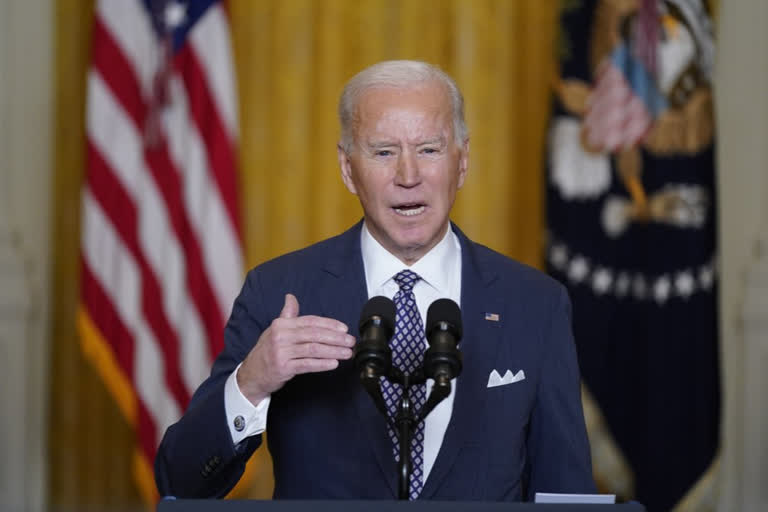Washington:President Joe Biden used his first address before a global audience on Friday to declare that “America is back, the transatlantic alliance is back,” after four years of a Trump administration that flaunted its foreign policy through an “America First” lens.
Speaking to the annual Munich Security Conference virtually, Biden ticked through a daunting to-do list — salvaging the Iran nuclear deal, meeting economic and security challenges posed by China and Russia and repairing the damage caused by the coronavirus pandemic — that he said would require close cooperation between the U.S. and its Western allies.
Without mentioning Donald Trump’s name once in his speech, Biden mixed talk of a reinvigorated democratic alliance with a rebuke of his predecessor’s approach, a message warmly received by Western allies.
’I know the past few years have strained and tested the transatlantic relationship,” Biden said. “The United States is determined to reengage with Europe, to consult with you, to earn back our position of trusted leadership.”
The president also participated Friday in a virtual meeting of the Group of Seven industrialized nations, where leaders managed to work Biden’s campaign theme into their closing joint statement, vowing to “work together to beat COVID-19 and build back better.”
“Welcome back, America,” said European Council President Charles Michel, effectively summing up the mood of the Munich conference.
Read:|Biden to lay out US foreign policy at global summits
But while such happy talk conveyed the palpable sense of relief among allies at Biden’s full-throated commitment to mending frayed U.S.-Europe relations, plenty has changed over the past four years in ways creating new challenges.
China has cemented its place as a fierce economic competitor on the continent as the U.S. has reconsidered long-held national security and economic priorities embedded in the transatlantic alliance. Populism has grown through much of Europe. And other Western countries have, at moments, sought to fill the vacuum left as America stepped back from the world stage.
German Chancellor Angela Merkel noted that some differences between the U.S. and Europe remain “complicated.” Europe sees China’s economic ambitions as less of an existential threat than the U.S. does and has its own strategic and economic concerns that are not always in sync with Biden on Russia as well.
Still, Merkel, who had a strained relationship with Trump, didn’t hide her preference for an American foreign policy informed by Biden’s world view.
“Things are looking a great deal better for multilateralism this year than two years ago, and that has a lot to with Joe Biden having become the president of the United States of America,” Merkel said. “His speech just now, but also his administration’s first announcements, have convinced us that this is not just talking but action.”
Biden made his address to a global audience as his administration this week took steps to reverse key Trump administration policies.
He said that the U.S. stands ready to rejoin talks about reentering the 2015 multilateral Iran nuclear deal abandoned by the Trump administration. The Biden administration announced Thursday its desire to reengage Iran, and it took action at the United Nations aimed at restoring policy to what it was before Trump withdrew from the deal in 2018.
Biden also spoke out about the two-decade war in Afghanistan, where he faces a May 1 deadline to remove the remaining 2,500 U.S. troops under a Trump administration negotiated peace agreement with the Taliban. He also called for cooperation in addressing economic and national security challenges posed by Russia and China and identified cyberspace, artificial intelligence and biotechnology as areas of growing competition.
“We must prepare together for long-term strategic competition with China,” Biden declared.
